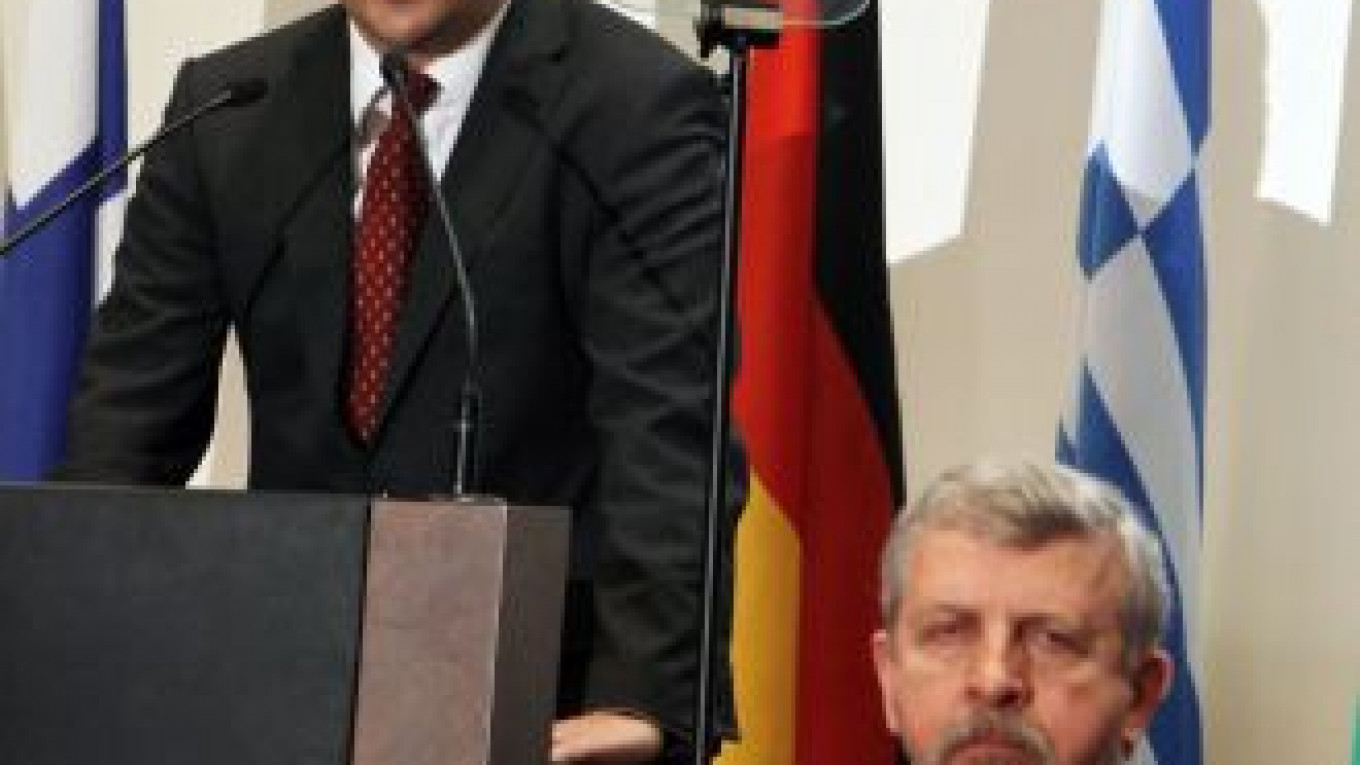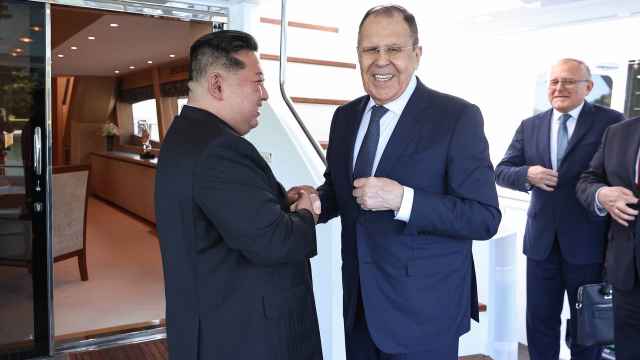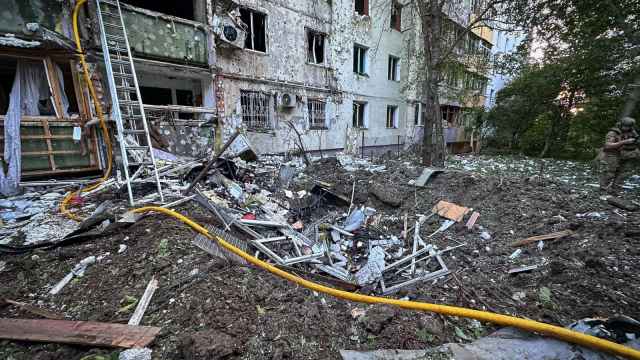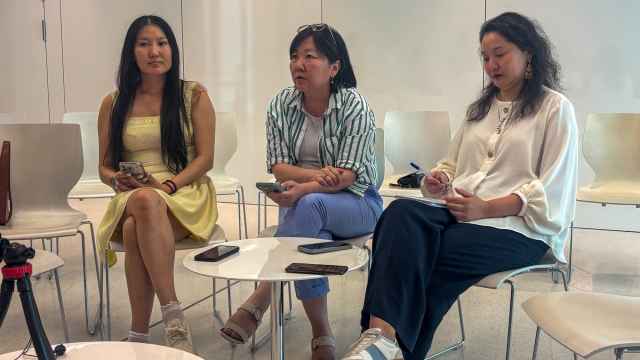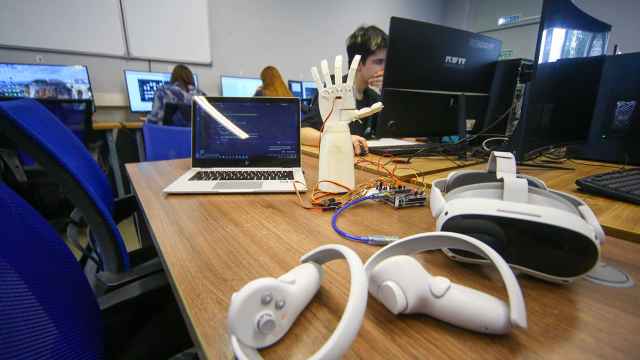WARSAW — Belarussian President Alexander Lukashenko is clinging to power against the will of his people just as some Arab leaders are doing, but he too will eventually be forced to flee, Poland's foreign minister said Wednesday.
Addressing an international donors' conference called to raise funds for pro-democracy groups in Belarus, Radoslaw Sikorski drew parallels between Belarus, which suppressed protests in December, and the turmoil in Egypt and Tunisia.
"President Lukashenko, you are losing [power]. … Sooner or later you will be forced to flee your own country, chased by your own people, to seek asylum in another country," he said.
"After developments in Tunisia and Egypt, this is becoming even more evident. In Minsk too, you will have to keep an aircraft ready for quick takeoff at any time," Sikorski told the donors, alluding to the recent flight into exile of Tunisia's long-serving leader, Zine al-Abidine Ben Ali.
Asked at a later news conference whether he thought Lukashenko's 16-year reign might end in revolution, Sikorski said: "Perhaps the example of Mr. Ben Ali or of [Egyptian President Hosni] Mubarak will make President Lukashenko reflect that the path he has chosen is not the best one for him personally."
On Monday, the European Union and the United States slapped new sanctions on Belarus in response to Lukashenko's crackdown on the protests in December after his disputed re-election.
They include a travel ban on Lukashenko and 155 other officials and the extension of a list of people affected by a EU asset freeze to include those involved in the crackdown.
Western governments have urged Lukashenko to free scores of protesters held after the Dec. 19 vote, judged as fraudulent by the opposition and international monitors.
The European Commission said it would increase funds to Belarussian human rights and educational groups and independent media fourfold to 15.6 million euros ($21.6 million). The United States promised to increase its aid to $15 million.
"With these measures, we are seeking to avoid isolating the Belarussian population," said EU Enlargement Commissioner Stefan Fuele.
Sikorski said the total amount of aid pledged on Wednesday was 87 million euros, though that sum also includes previously allocated funds. The EU accounts for 75 percent of the total.
"This is about the credibility of Europe. We stand for certain values, human rights and the rule of law. … The signal we send today concerns not only Belarus but the wider European neighborhood," said Swedish Foreign Minister Carl Bildt.
Belarussian activists welcomed the pledges of help, though they also criticized the West's efforts before the election to engage Lukashenko in dialogue in a bid to encourage reforms.
"This conference shows they [the West] have finally understood that their partner is not Lukashenko but civil society in Belarus," said Eva Neklyayev, daughter of opposition presidential candidate Vladimir Neklyayev, who was beaten by security forces and later arrested from his hospital bed.
Vladimir Neklyayev was released from jail last weekend for "good behavior" but remains under house arrest.
"I want to see Belarus free, as a country where human life and freedom have some meaning and value," his daughter said.
A Message from The Moscow Times:
Dear readers,
We are facing unprecedented challenges. Russia's Prosecutor General's Office has designated The Moscow Times as an "undesirable" organization, criminalizing our work and putting our staff at risk of prosecution. This follows our earlier unjust labeling as a "foreign agent."
These actions are direct attempts to silence independent journalism in Russia. The authorities claim our work "discredits the decisions of the Russian leadership." We see things differently: we strive to provide accurate, unbiased reporting on Russia.
We, the journalists of The Moscow Times, refuse to be silenced. But to continue our work, we need your help.
Your support, no matter how small, makes a world of difference. If you can, please support us monthly starting from just $2. It's quick to set up, and every contribution makes a significant impact.
By supporting The Moscow Times, you're defending open, independent journalism in the face of repression. Thank you for standing with us.
Remind me later.


